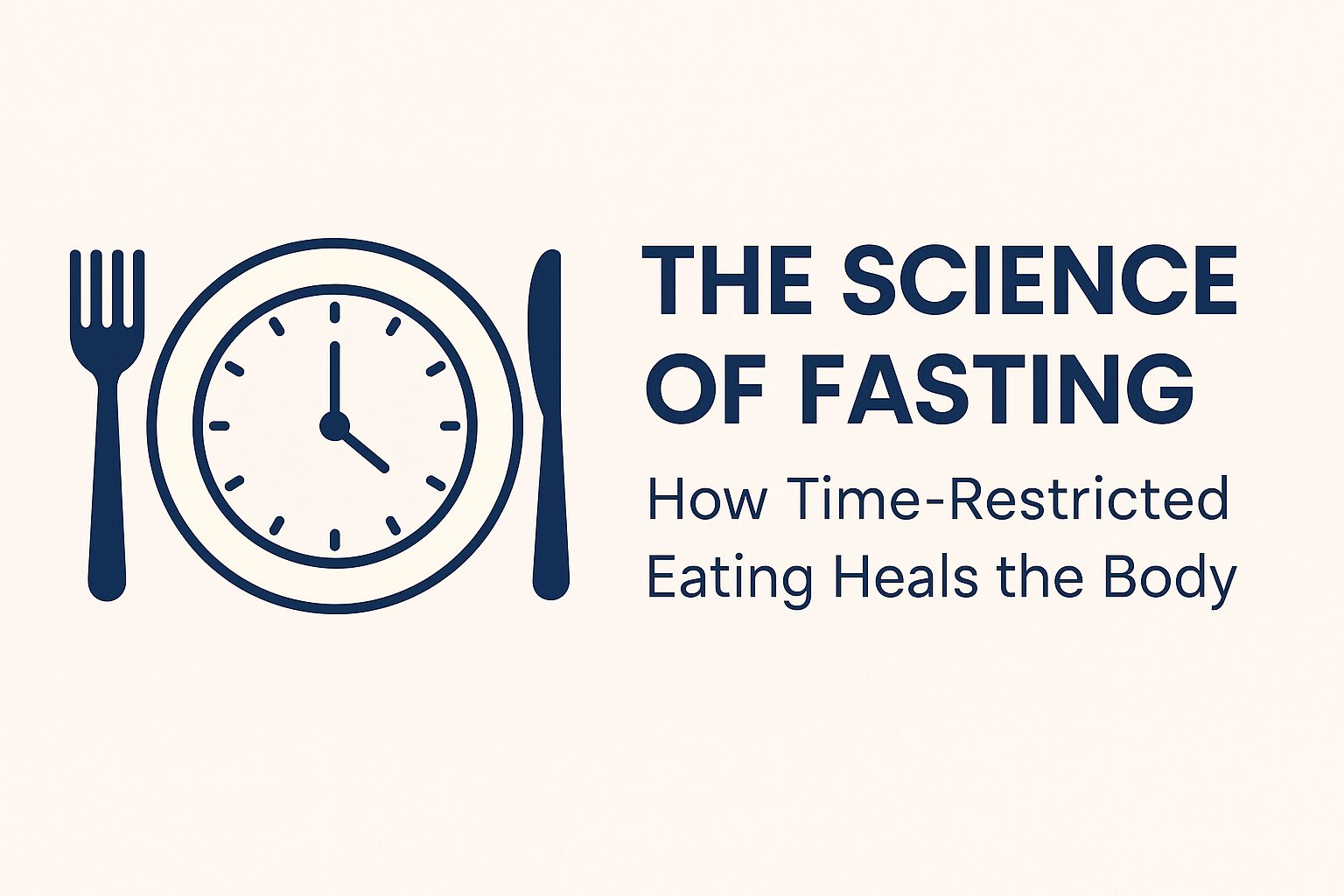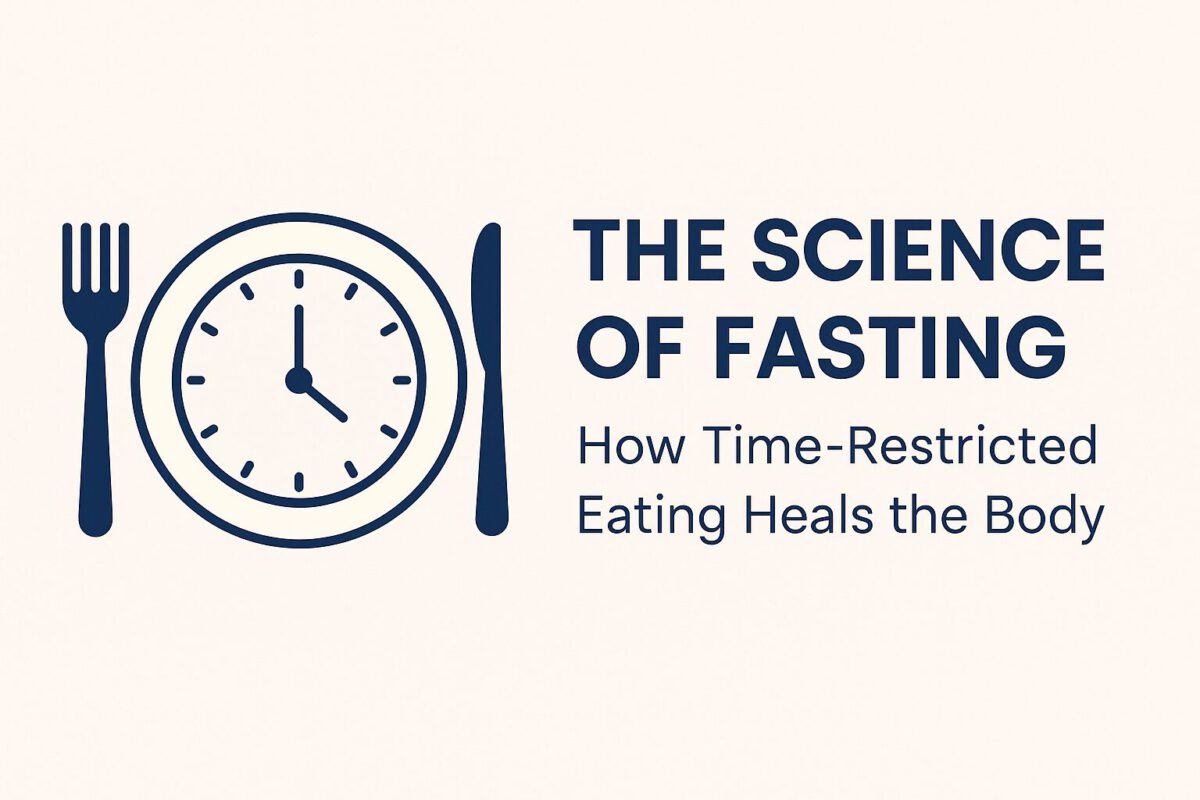The Science of Fasting: How Time-Restricted Eating Heals the Body
Introduction
Fasting has been practiced for centuries across cultures and religions. But in recent years, modern science has started to reveal what ancient wisdom always suggested: fasting, when done correctly, can have powerful benefits for the human body and mind. At The Life Lens, we dive deep into the science behind time-restricted eating and explore how fasting can improve health, prevent disease, and even enhance longevity.
What Is Fasting?
Fasting is the voluntary abstention from food for a specific period of time. There are many types, but one of the most studied in modern health science is intermittent fasting (IF), particularly time-restricted eating. This involves limiting your daily eating window to 8-10 hours and fasting for the remaining 14-16 hours.
The Science Behind Fasting
Research shows that fasting influences several biological processes:
- Insulin Sensitivity: Fasting lowers insulin levels and increases insulin sensitivity, allowing cells to use glucose more effectively.
- Cellular Autophagy: During fasting, cells initiate autophagy, a natural process where damaged components are broken down and recycled.
- Hormonal Balance: Fasting improves hormone function, including increases in human growth hormone (HGH), which supports fat burning and muscle gain.
- Reduced Inflammation: Fasting has been shown to lower markers of systemic inflammation, which is a key factor in many chronic diseases.
Health Benefits of Fasting
- Weight Loss and Fat Burning: By lowering insulin and increasing fat oxidation, fasting is a natural strategy for body fat reduction.
- Improved Metabolic Health: Regular fasting can lower blood sugar levels, reduce blood pressure, and improve cholesterol profiles.
- Brain Health: Fasting supports brain function by boosting BDNF (brain-derived neurotrophic factor), which protects and repairs neurons.
- Longevity: Animal studies suggest fasting can extend lifespan and reduce age-related disease.
Fasting and Insulin Resistance
One of fasting’s most powerful effects is its ability to reverse insulin resistance—a condition where cells stop responding to insulin properly. Fasting gives the body a break from constant glucose intake, allowing insulin levels to drop and sensitivity to return. This makes fasting a valuable tool in the prevention and treatment of prediabetes and type 2 diabetes.
Precautions and Who Should Avoid Fasting
Fasting isn’t for everyone. People with certain health conditions, those who are pregnant or breastfeeding, or individuals with a history of eating disorders should consult a healthcare professional before starting any fasting regimen. Listening to your body and starting gradually is key.
Conclusion
Fasting is more than just a diet trend. It’s a deeply rooted biological process that, when practiced thoughtfully, can unlock profound health benefits. At The Life Lens, we believe in looking at life through a scientific and holistic perspective—and fasting is a clear example of ancient wisdom validated by modern science.
For more insights and video content about fasting, insulin resistance, and metabolic health, visit our YouTube channel and website: TheLifeLens360
Scientific References:
- Longo, V.D., & Panda, S. (2016). Fasting, circadian rhythms, and time-restricted feeding in healthy lifespan. Cell Metabolism.
- Mattson, M.P., et al. (2017). Intermittent metabolic switching, neuroplasticity and brain health. Nature Reviews Neuroscience.
- Patterson, R.E., & Sears, D.D. (2017). Metabolic effects of intermittent fasting. Annual Review of Nutrition.
- Di Francesco, A., et al. (2018). A time to fast. Science.
- Sutton, E.F., et al. (2018). Early time-restricted feeding improves insulin sensitivity. Cell Metabolism.


